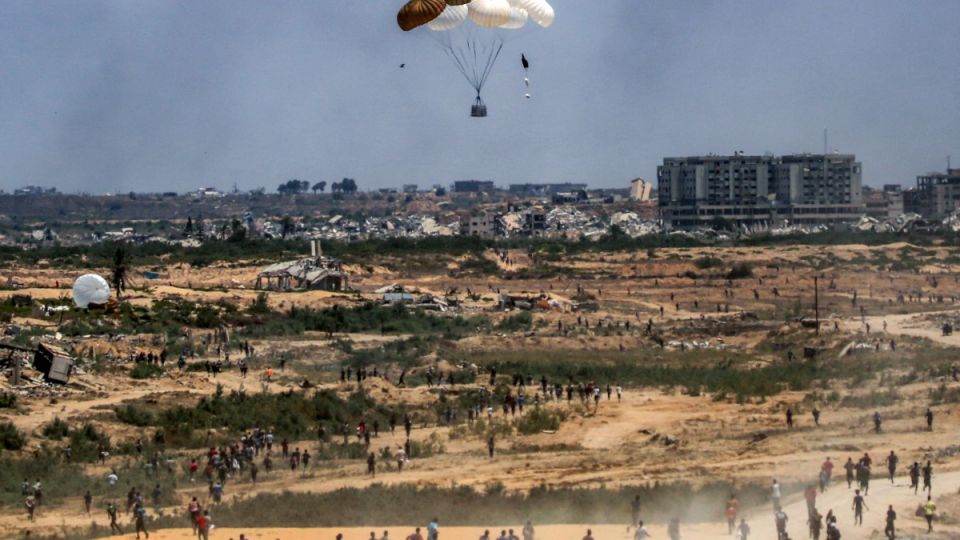August 6, 2025
JAKARTA – Indonesia is hoping to deliver its humanitarian aid to Gaza, including 10,000 tonnes of rice, via land routes instead of high-risk airdrops, as access to the besieged exclave remains severely limited amid Israel’s renewed military operations.
Foreign Minister Sugiono urged Israel to immediately open unhindered humanitarian corridors into Gaza and to refrain from weaponizing starvation, condemning the rising number of civilian casualties under the ongoing blockade.
“Blocked humanitarian corridors have taken the lives of children and infants. The images coming out of Gaza will surely unsettle anyone who still has a sense of humanity,” the minister said on Tuesday, as quoted by Antara.
He further emphasized that Indonesia prefers land delivery as the most humane and effective option despite the many challenges involved. “Airdrop operations are high-risk and come with numerous technical complications that we must be prepared to handle,” he said.
He further emphasized that Indonesia favors land delivery as the most humane and effective option. “Using an airdrop delivery method will be high-risk. There will also be many technical issues that we have to address”.
On Sunday, Indonesia announced it would send 10,000 tonnes of rice to Gaza as part of its “real action” in supporting the Palestinian cause, the latest round of aid for the besieged exclave amid rising global concern over famine.
Read also: Foreign Minister reaffirms Indonesia’s stance against relocation of Palestinians
Minister Sugiono made the announcement during a pro-Palestine rally at the National Monument (Monas) in Central Jakarta, calling the move a reflection of Indonesia’s “disturbed conscience” in the face of what he described as “genocide” and the “use of starvation as a weapon” in Gaza.
Conditions in the territory continue to deteriorate as Israel’s military campaign, now in its second year, shows no sign of ending. Over 2.1 million Palestinians face relentless bombardments, displacement, a collapsed healthcare system and extreme food shortages.
A July report by the Integrated Food Security Phase Classification (IPC) warned that nearly half of Gaza’s population is suffering from “catastrophic” hunger, the most severe level on the scale.
“Hundreds of billions of rupiah, millions of US dollars and 4,000 tonnes of logistic assistance have been sent by the Indonesian government to Palestine. This is our concrete action,” Sugiono said during his impassioned speech over the weekend, continuing, “but the fight is far from over.”
Foreign Ministry spokesperson Hartyo Harkomoyo told The Jakarta Post on Tuesday that Jakarta was currently preparing for the rice assistance delivery, with several ministries and agencies now drawing up plans with their Palestinian counterparts to ensure unhindered shipment.
Meanwhile, members of House of Representatives Commission I overseeing foreign affairs welcomed the move as a sign of solidarity, but urged the government to work with credible international institutions such as the UN Relief and Works Agency for Palestine Refugees (UNRWA) and the International Committee of the Red Cross (ICRC).
Read also: Gaza war deepens Israel’s divides
State-owned public food corporation Perum Bulog said they have reserved 10,000 tonnes of their “best quality rice” for the mission, adding that they stood ready to help further in the Palestinian cause.
“We have ensured that the rice is of the highest quality […] This is not only about food, but also solidarity,” Bulog Jakarta deputy head Rizky Puspitasari Umagaf said on Tuesday.
Still, questions remain about the aid’s effectiveness considering the severe shortages of water, fuel and gas for cooking in Gaza.
A UN report from June described fuel scarcity as a “matter of life or death,” with many struggling to process raw food. Between April and June, Gaza’s soup kitchens saw an 80 percent drop in meals served, with some forced to burn toxic waste as fuel.
“Israeli authorities continue to restrict the delivery of fuel into and throughout the Gaza strip, effectively choking off life-saving services for deprived and starving people,” said UN spokesperson Stéphane Dujarric.


